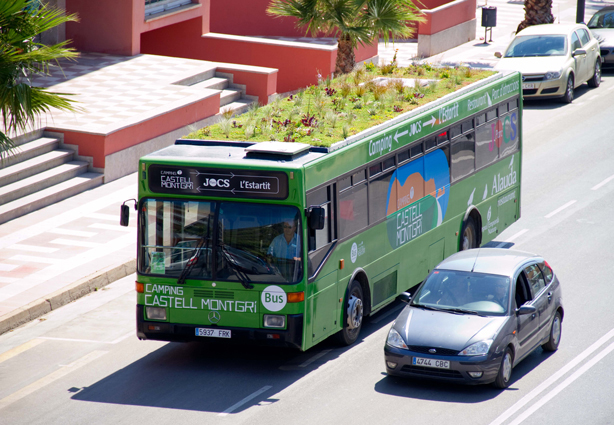Kshama Sawant didn’t have to identify as a socialist.
Seattle
City Council races are nonpartisan, after all, and her views aren’t
particularly revolutionary, as far as Seattle goes: She supports a $15
minimum wage (as do both mayoral candidates), unions for low-wage
workers and rent control.
But branding herself as a socialist – still a dirty word in many corners of American politics – may have helped her rake in
35 percent of the primary vote with little money. (She had raised about $110,000 as of Monday night.)
Councilmember
Nick Licata, who has been on the council for 16 years, said Sawant’s
message resonates because a section of voters are tired of risk-averse
Democrats and Republicans. Sawant, he said, has managed to make
socialist ideas appeal to voters.
“We don’t have a mature
socialist political movement in the country, and probably the last time
we did was literally 80 years ago,” Licata said. “To Sawant’s credit,
she has been able to craft a message that is understandable, simple and
eschews most of the rhetoric.”
Sawant ran against Richard Conlin,
64, a darling of the Democratic party with left-leaning views. Conlin
appeared to be winning on Tuesday night with 54 percent of the vote when
King County released its first results. Sawant received about 46
percent of the vote.
Sawant stayed on message throughout her
campaign, using dry, academic language to discuss the issues she wants
addressed. The roots of homelessness are within the roots of our
capitalist society itself, she said at the October debate.
Later, on the social media site Reddit,
she addressed rent control:
What
rent control would do is provide housing security for tenants, who are
at present continually forced to move due to rent increases demanded by
price-gouging real estate companies. It would also address the serious
income and race segregation in Seattle housing and enable low-income
people, people of color, and immigrant communities to not be red-lined
out of the city.
It appears that Sawant, 41, won support on the strength of her
message alone. She is a Mumbai-educated economics professor who rarely
strays from her platform and who avoids discussing her private life –
although she has grudgingly admitted that she is separated from her
husband. She doesn’t wear pantsuits or coiffe her hair, and she rarely
points to her past experiences or to endorsements.
Sawant’s
political campaign director, Philip Locker, an organizer for the
Socialist Alternative party, said that by running for office, Sawant
pushed neglected issues into the spotlight.
“We’ve gotten an
enormous response – we’ve even forced both Mayor Mike McGinn and Sen. Ed
Murray to discuss the $15 minimum wage,” Locker said of the mayoral
candidates. “That’s powerful.”
When Sawant speaks, her supporters cheer. The Stranger has endorsed her enthusiastically, and
The Nation magazine, based in Washington, D.C., wrote about her this week in equally glowing terms.
The
Nation noted that Eugene V. Debs, the socialist candidate for president
in 1912, received more than 10 percent of the vote in the Western
states, including Washington.
Sawant’s campaign in Seattle speaks
to a similar sense of disgruntlement with the two-party system, The
Nation wrote, saying that a “bold rejection of austerity has significant
popular appeal.”
But even a century ago, when Debs won more than
one million votes nationwide, no socialist was this close to winning a
city council position in Seattle, Scott Cline, the city’s archivist
said.
City council elections have been nonpartisan since 1910,
Cline said, but “I have never seen any records that indicate a city
council member has self-identified as a socialist or belonged to a
socialist party.”
Cline said that before 1910, a number of socialist candidates ran, but none seem to have made it out of the primary elections.
“It
is certainly possible that after 1910 there might have been a serious
socialist challenge,” Cline said in an email to KUOW. “However, no name
from general elections stands out as a strong socialist candidate;
certainly not on par with Kshama Sawant.”
Cline searched through
the available voters’ pamphlets dating back to 1983 and found there has
been just one other socialist candidate for Seattle City Council who did
well – Yolanda Alaniz. Alaniz came in second among four candidates in
1991. She lost to Sue Donaldson, 131,872 to 27,991.
“Nevertheless, nearly 28,000 votes is quite amazing for a socialist candidate,” Cline said.
Licata
said he believes that Sawant won’t be an anomaly and that more fringe
candidates — on the left and the right — will run for office in coming
years.
“My hope is that she doesn’t disappear after the election
if she loses,” Licata said on Monday, before Tuesday night's results.
“She represents the poor, the immigrants, the refugees – the folks who
are not in our City Council offices lobbying us.”
On Tuesday
night, Sawant told her supporters that she's not going anywhere. She
hinted that she might run against Conlin again if she loses. And she
said that she views the passing of the $15 minimum wage in SeaTac as
evidence of the left rising up.
Isolde Raftery @ kuow.org
Original article: http://kuow.org/post/why-socialist-kshama-sawants-campaign-matters-win-or-lose
 World’s First Vertical Forest Gets Introduced in Italy (via greenliving4live.com)
World’s First Vertical Forest Gets Introduced in Italy (via greenliving4live.com)











